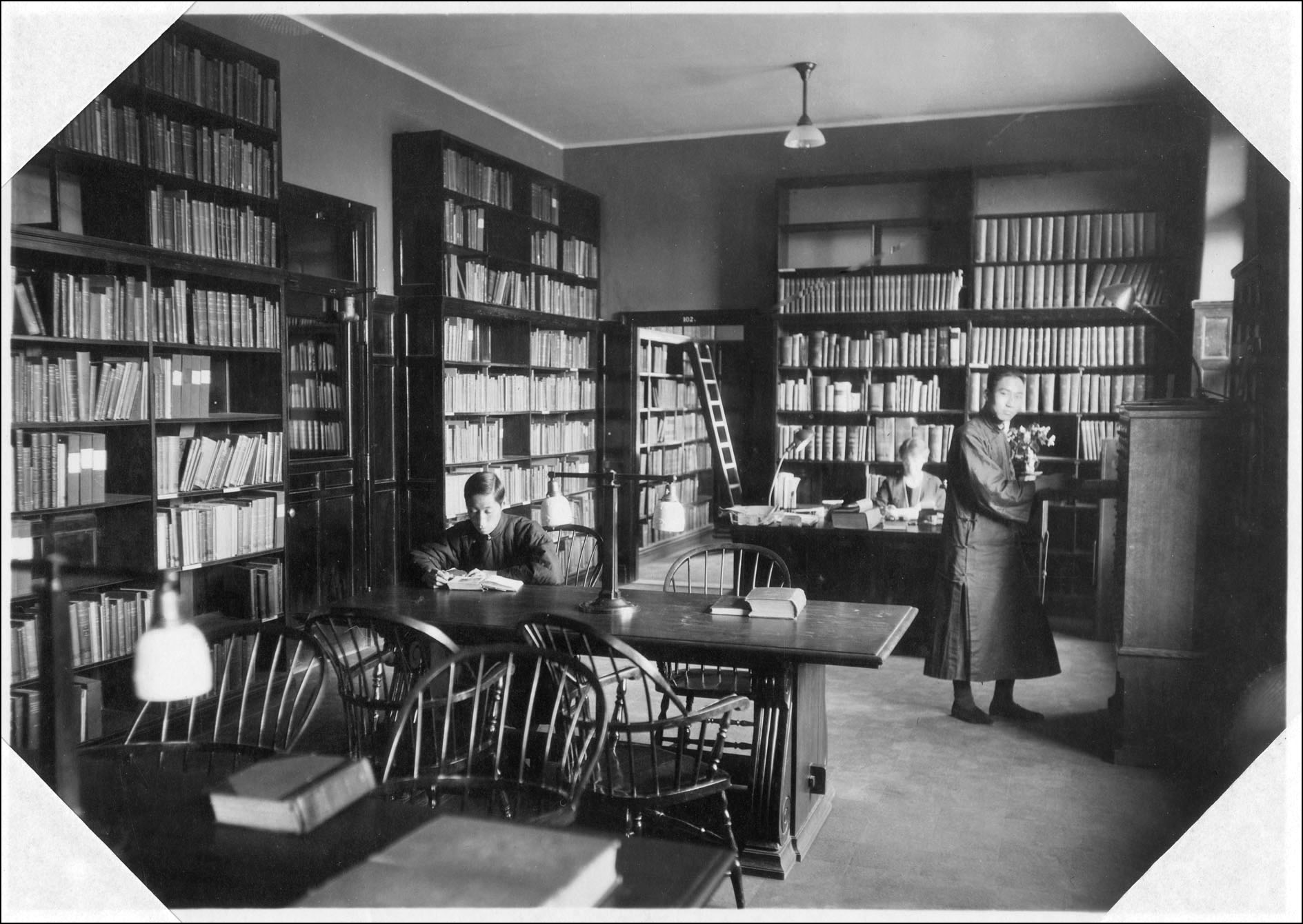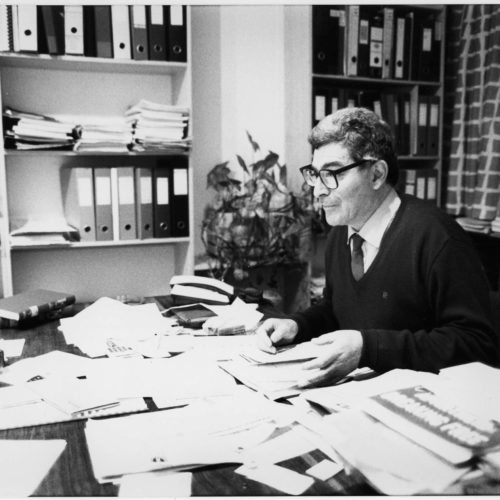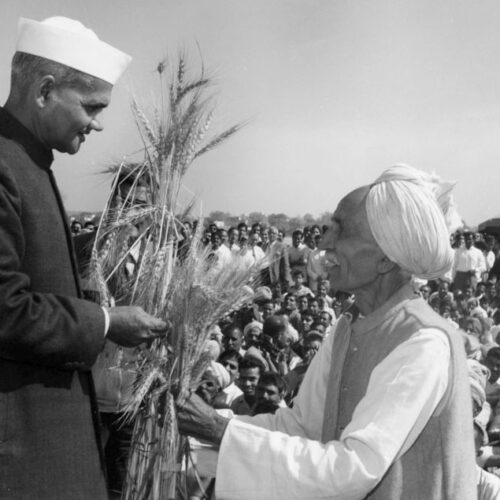Our New Research series highlights recently published reports written by researchers who have received stipends from RAC to pursue their studies in our archival collections. In this edition of the series, the authors have used the records of the Ford Foundation, the Rockefeller Foundation, and China Medical Board, Inc.
“Red Scare Recovery: The Ford Foundation’s Role in Rescuing China after McCarthyism” by Matthew Linton
Matthew Linton is a historian with a deep interest in American intellectual history, and particularly in American expertise on China. In “Red Scare Recovery: The Ford Foundation’s Role in Rescuing China after McCarthyism,” he describes the dark shadow that McCarthyism cast over the field of China studies in the wake of the perceived “loss” of China to the communists in 1949. He points out that the response of the foundation world was not uniform.
The Rockefeller Foundation, with a half-century-long footprint in China, pulled away from its engagement in the 1950s, including its support for China experts. This was partially the result of Cox and Reece Congressional committee work investigating the behavior of foundations, but also the result of the RF’s pivot to other areas of work.
In contrast and at almost the same time, the Ford Foundation became a major funder of academic centers for China studies. Linton notes that while this action by Ford sustained the field during the postwar period, it also reshaped China studies into a field dominated by a small number of elite institutions.
“The Rockefeller Foundation, the League of Nations’ Intellectual Cooperation Project, and the Idea of ‘Internationalism’ during the Second World War” by Letícia Pumar Alves de Souza
As Nazi forces advanced across Europe in the early phases of World War II, the League of Nations was seeking ways of saving various programs and projects from the conflict. Letícia Pumar Alves de Souza’s research report looks at one of those efforts.
“The Rockefeller Foundation, the League of Nations’ Intellectual Cooperation Project, and the Idea of “Internationalism” during the Second World War” highlights the role of the Rockefeller Foundation in trying to help the League of Nations re-establish the International Institute for Intellectual Cooperation (IIIC), formerly headquartered in Paris until the Nazi invasion of France, to somewhere in the Americas.
Miguel Ozório de Almeida, a Brazilian physiologist, was an active proponent of this plan. Dr. Pumar notes that Ozório de Almeida’s enthusiasm was in line with his embrace of “scientific internationalism,” but also reflected his advocacy of the advancement of Brazilian intellectual life. Letícia Pumar Alves de Souza received her Ph.D. in history from the Fundação Oswaldo Cruz (Fiocruz) and is currently a post-doctoral fellow at the Universidade Federal Rural do Rio de Janeiro (UFRRJ).
“Constructing Changes: Seoul National University Hospital and China Medical Board Support, 1967-1978” by Junho Jung
In his report, “Constructing Changes: Seoul National University Hospital and China Medical Board Support, 1967-1978,” Junho Jung looks at the impact of grants made by the China Medical Board, Inc. to build a modern hospital in Seoul that had its beginnings under Japanese imperial rule. The project spanned a period of eleven years and cost some $60,000,000, turning Seoul National University Hospital (SNUH) into one of the largest hospitals in the world at that time.
Dr. Jung emphasizes that the design of the project reflected the fundamental changes Korean medicine had undergone following the country’s liberation in 1945 and the devastating Korean War in the early 1950s, as medical practice and education shifted from a Japanese model to a distinctly American one.
Also, starting in the 1960s, South Korean society experienced major changes as its economy accelerated rapidly. Seoul grew astronomically over the subsequent years, and the country instituted national health insurance, which created new hospital needs for the city. Dr. Jung found that the CMB, Inc. records on the SNUH construction project, in essence, documented important aspects of all these developments in Korean medicine and healthcare. Junho Jung is currently a researcher at the Korean Research Institute of Science, Technology and Civilization, Jeonbuk National University.
“Siegfried Kracauer’s New York Networks” by Johannes von Moltke
The arrival of German film theorist Siegfried Kracauer to New York in May 1941 is the subject of Johannes von Moltke’s research report. Kracauer is viewed by many as a towering figure of the then-emerging discipline of film studies.
In “Siegfried Kracauer’s New York Networks,” Dr. von Moltke traces Kracauer’s interactions with various intellectual circles in the city. By providing grant support for some of his activities, the Rockefeller Foundation played a critical role in helping Kracauer find his footing in his adopted country. For the government and policy makers, the importance of film studies was indeed amplified at this time of world war, when interest in the use of mass communications for shaping public opinion and studying the propaganda of the enemy heightened.
Dr. von Moltke points out that the development of the field of film theory evidenced tension between two competing visions of the discipline. Was it to be a social science based on quantitative studies? Or was it part of the humanities, and a field of cultural knowledge? He observes that Kracauer navigated adeptly between these two poles but his heart and frame of reference were definitely those of a humanist.
Johannes von Moltke is a professor in the Department of Film, Television, and Media, as well as the Department of German Languages and Literatures, at the University of Michigan.
About the RAC Research Stipend Program
The Rockefeller Archive Center offers a competitive research stipend program that provides individuals up to $5,000 for reimbursement of travel and accommodation expenses. Learn more on our Research Stipend page



